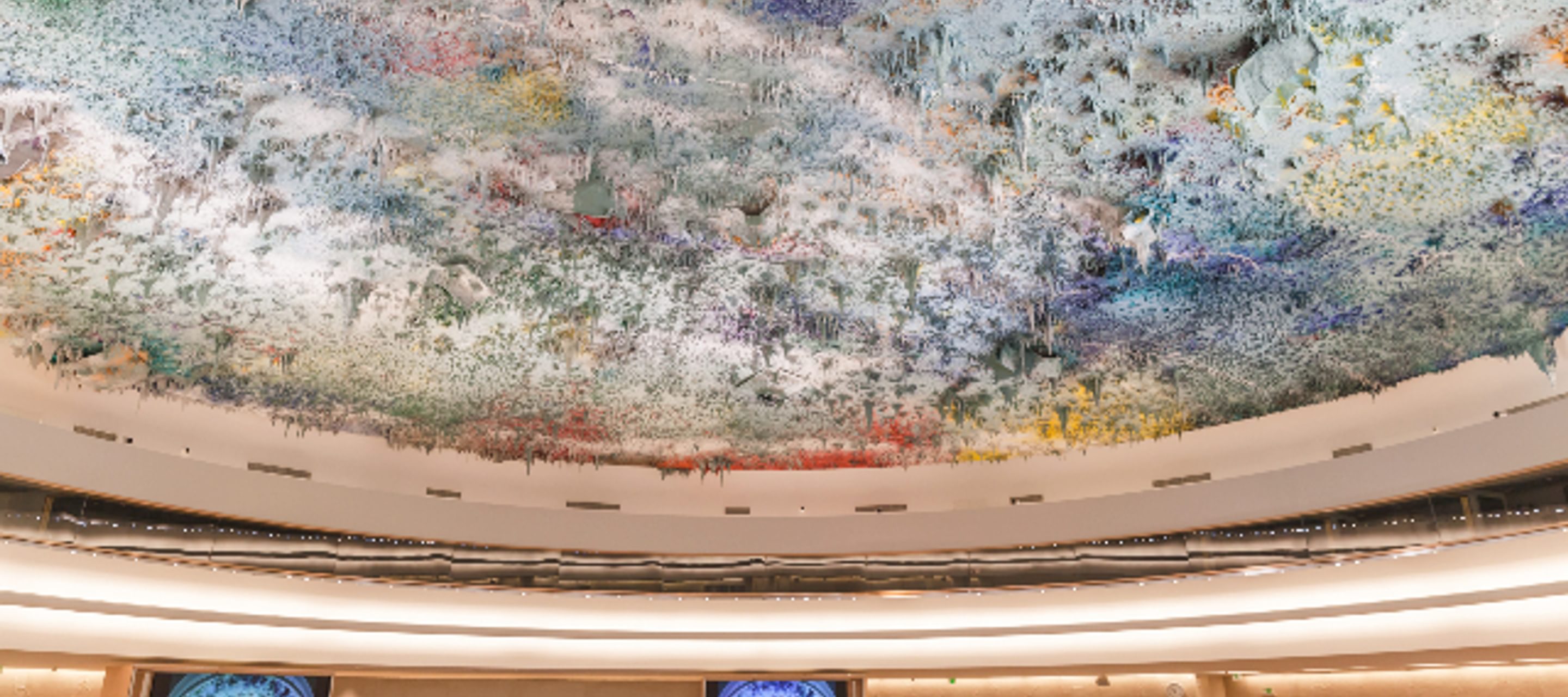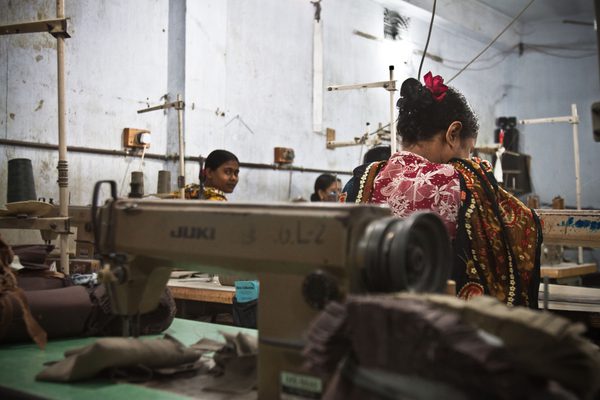Business Responsibilities Increasingly on UN Human Rights Council’s Agenda
4 July 2019

The 41st session of the United Nations Human Rights Council got underway in Geneva last week with a full plate of urgent issues to address. Ongoing conflicts from Syria to Venezuela are on the agenda alongside worrying global trends like criminalisation of migrants and expanding incitement of violence on the basis of religion.
These are all critical subjects. What shouldn’t go unnoticed, however, in the multitude of human rights concerns the Council takes on is the steadily growing attention to the private sector and its responsibilities.
Most of what happens around the UN on human rights rightly remains directed at states and their obligations under international law. But different parts of the UN system are finding it necessary to address corporate actors on a diverse range of important issue areas from climate change to gender equality, from freedom of expression to child rights.
Different parts of the UN system are finding it necessary to address corporate actors in a diverse range of important issue areas from climate change to gender equality, from freedom of expression to child rights.
Building on the UN Guiding Principles on Business and Human Rights (UNGPs) as well as the ongoing inter-governmental process to develop an international legal instrument to regulate the activities of transnational corporations and other business enterprises, UN rights experts are increasingly focusing on corporate sector actors. This shows that the business and human rights discourse is no longer a specialty topic, but is being mainstreamed in the wider global human rights conversation – as it should be, given the influence and impacts companies have – for good or for ill – on human rights.
For those not following the UN’s broader human rights work in detail, here’s a brief rundown of just some of the recent UN reports and recommendations of direct relevance to business. The scope of the topics and industry sectors covered shows how UN experts are making the connections between corporate activities and efforts to ensure respect for human rights. Their recommendations should inform efforts to implement responsible practices in company operations and across business relationships.
For those not following the UN’s broader human rights work in detail, here’s a brief rundown of just some of the recent UN reports and recommendations of direct relevance to business.
UN Working Group on Business and Human Rights
The UN Working Group on Business and Human Rights has the broad mandate of advancing the UNGPs and the corporate responsibility agenda amongst states and companies in all regions. The experts’ latest report to the Council takes on the subject of eliminating discrimination against women and girls, and is based on the results of an extensive global consultation process over the past two years.
The new report proposes a gender framework and guidance for states and businesses that should serve as a useful reference point in the often under-prioritised task of ensuring gender equity as part of corporate human rights due diligence. As the UN Working Group’s Chair, Surya Deva notes, the challenge is profound and nothing less than ensuring “systemic changes to discriminatory power structures, social norms and hostile environments that are barriers to equal enjoyment of human rights by women and girls in all spheres.”
UN Special Rapporteur on extrajudicial, summary or arbitrary executions
The UN Special Rapporteur on extrajudicial, summary, or arbitrary executions, Agnes Callamard, made headlines recently for her report setting out the findings of an inquiry on the killing of journalist Jamal Khashoggi at the Saudi Consulate in Turkey in 2018. The report is an important step in the search for accountability and justice for this horrific incident. Less discussed is the report’s recommendations concerning businesses operating in or cooperating with the government of Saudi Arabia.
The report calls on companies to take a range of actions including: affirming their commitment to human rights and making the Kingdom of Saudi Arabia aware of those commitments, and using leverage to ensure that business partners in the country adhere to those commitments; establishing monitoring mechanisms to ensure companies’ own conduct and that of associates do not cause harm to human rights; developing explicit policies to avoid entering into business deals with anyone that may have had a direct or indirect role with Mr. Khashoggi's execution, or other grave human rights violations.
It suggests that companies will need to determine “whether their functions and outputs could be used to violate human rights or cover up violations” and that this may mean “turning down such contracts” and “speaking up” in the face of such abuses.
The report is also significant in specifically calling out the responsibilities of business actors such as lobbyists, public relations firms, media outlets and journalists contracted by the Saudi Government and others for the purpose of helping protect the Kingdom’s reputation abroad. It suggests that companies will need to determine “whether their functions and outputs could be used to violate human rights or cover up violations” and that this may mean “turning down such contracts” and “speaking up” in the face of such abuses.
UN Special Rapporteur on freedom of expression and opinion
David Kaye, the Special Rapporteur on freedom of expression and opinion, in his latest report to the Human Rights Council, calls on private surveillance companies to “publicly affirm their responsibility to respect freedom of expression, privacy and related human rights, and integrate human rights due diligence processes from the earliest stages of product development and throughout their operations.”
Companies should ensure safeguards such as contractual clauses are in place to avoid products being used in ways that undermine human rights protections.
The Rapporteur stresses that companies should ensure safeguards such as contractual clauses are in place to avoid products being used in ways that undermine human rights protections and to report detected misuse. He also recommends that business leaders join governments, civil society, and other stakeholders in establishing joint initiatives that develop rights-based standards of conduct for the private surveillance industry as we’ve seen in other industry sectors.
UN Special Rapporteur on extreme poverty and human rights
The newest report by the Special Rapporteur on extreme poverty and human rights, Philip Alston, addresses the many links between climate change, poverty, and human rights. With respect to business, Alston highlights the extensive campaign by fossil fuel companies to block binding emissions commitments and the scale of ongoing state subsidies to the industry and the devastating impacts.
The report also points out how international trade and climate regimes have advanced over recent decades with vastly different approaches to the enforceability of commitments made and the priority given to investors over other stakeholder concerns. As the Special Rapporteur puts it: “Addressing climate change will require a fundamental shift in the global economy... This will entail radical and systemic changes including incentives, pricing, regulation, and resource allocation, in order to disrupt unsustainable approaches and reflect environmental costs in entire economic subsystems including energy, agriculture, manufacturing, construction, and transportation.”
UN Special Rapporteur on sale and sexual exploitation of children
One final noteworthy example, given our work at IHRB to develop the new Centre for Sport and Human Rights with a particular focus on child rights, is the report from earlier this year by Maud de Boer-Buquicchio, Special Rapporteur on the sale and sexual exploitation of children, which focused on children in the context of sports.
While many [sports institutions] are registered as associations, they still carry the same responsibilities to respect human rights as private enterprises.
The Rapporteur points out that sports institutions are not exempt from responsibility in cases of child rights violations and that while many are registered as associations, they still carry the same responsibilities to respect human rights as private enterprises and are liable under the domestic laws of the country where they are based. The report includes a series of recommendations to sports organisations such as independent reporting on cases of child exploitation, comprehensive child rights training for anyone working with children, and providing spaces for child participation on issues impacting them during major sporting events, among others.
All of these recent UN report examples should remind us that a growing number of human rights expert mandates, established by governments in the Human Rights Council are increasingly important actors in the business and human rights agenda - despite being often under-resourced and facing political pressures. Their voices need to be heard and their expertise brought to the table. Companies should recognise that the wider UN human rights system is scrutinising business conduct, and it will no longer be enough to speak of adhering to the UNGPs without also taking into account wider impacts of business activities on a range of human rights challenges around the world.
Companies should recognise that the wider UN human rights system is scrutinising business conduct, and it will no longer be enough to speak of adhering to the UNGPs without also taking into account wider impacts of business activities on a range of human rights challenges around the world.




